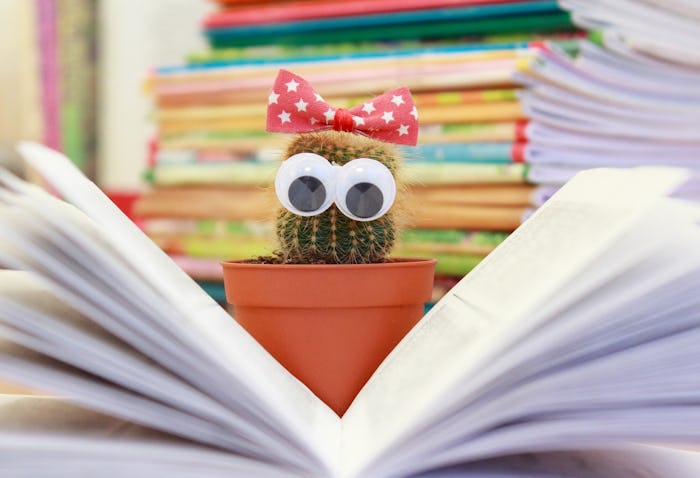Who doesn't have a favorite book from their childhood? As a child, the world of books opens up a world of imagination. They teach you lessons, they teach you to dream, and they teach you that being a kid is pretty much the best thing ever. But what about reading those same books as an adult? The undertones become much more apparent as an adult, and the hidden meanings behind children's books can really blow your mind. To find out that your childhood favorite was really political commentary? Well, it's more common than you think.
When you reread your childhood favorites, it only makes sense that they'd take on a whole new meaning. You've grown, you've experienced things, you're an adult now. The fact that adults were weaving allegories into books written for children, that readers only understood once they became adults is ironic. The truth of the matter is, revisiting the books of your childhood can be risky. So unless you're ready to never look at Curious George the same way again, I suggest you stop reading here. But you're already hooked, aren't you? How could Curious George be anything more than a fun tale for children? Let me explain.
1"Curious George" by H.A. and Margret Rey
The reason Curious George is always on the run? Because Hans and Margret themselves were on the run. The recurring theme of George's narrow escapes were an autobiographical detail of the couples escape from the Nazis, according to curator Claudia Nahson.
2"James And The Giant Peach" by Roald Dahl
When James and the Giant Peach land in New York City, Manhattan loses its mind. Viewed as a nuclear threat, James's insect friends seen as terrible aliens, they're not exactly welcomed with open arms. If there's a theme throughout Dahl's books, it teaching children to ignore the impossible and learn to look deeper than what may be on the surface. The tale of the giant peach is no different. Soon, James and his pals are proven innocent and they feed thousands of New Yorkers with their giant peach. Moral of the story? Stop fearing the unknown.
3"The Wizard Of Oz" by L. Frank Baum
Before the film version made Dorothy and Toto household names, L. Frank Baum's The Wonderful Wizard of Oz was published in 1900. Scholars argue that the tale is an allegory for the gold standard debate and the Populist movement, though Baum never acknowledged this theory.
4"Horton Hears A Who" by Dr. Seuss
Horton Hears a Who! takes on the post-World War II occupation of Japan by the United States, and the need for the U.S. to help Japan.
5"Marvin K. Mooney Will You Please Go Now" by Dr. Seuss
Leaving the subtle nature of his books for children, Seuss sent a copy of Marvin K. Mooney Will You Please Go Now! to The Washington Post with "Marvin K. Mooney" crossed out and replaced with the name "Richard M. Nixon." In 1974, the Post printed the version Seuss had sent them in a 1974 article, "Richard M. Nixon Will You Please Go Now!" leaving nothing to the imagination.
6"The Little Engine That Could" by Watty Piper
Do I sense a feminist plot in this train story? Before Thomas the Train took over children's conductor dreams everywhere, there was The Little Engine That Could. She went to the rescue of her fellow female engine who had broken down in the middle of a very important delivery of toys and food. Two female trains saving the day? Heck yes.
7"Yertle The Turtle" By Dr. Seuss
Yertle the Turtle has delusions of grandeur so high, that they wind up toppling over on him. Demanding his loyal turtle subjects to stack themselves up so that he can see, then declaring himself the ruler of all he sees, nothing is enough for Yertle. Believed to represent Adolf Hitler's regime, Yertle was written in 1958, and can easily be a symbol for any of the dictators of that time.
